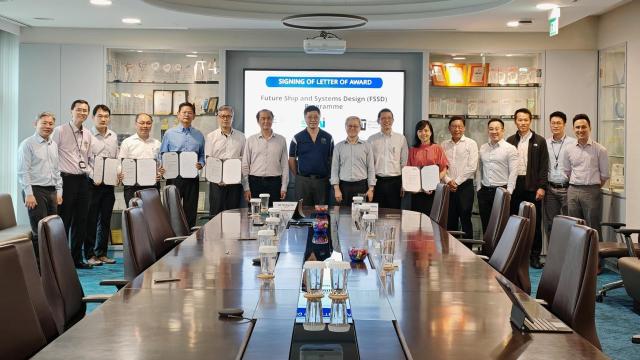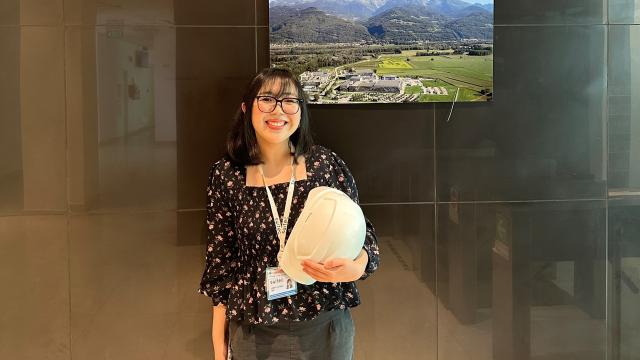
Adding to its suite of specialised degree programmes, the Singapore Institute of Technology (SIT) is launching a new programme in Bachelor of Engineering in Robotics Systems (RSE) in Academic Year 2021 (AY2021). Commencing in September 2021 with an initial intake of 40 students, the four-year programme focuses on the design and development of Service/Field Robotics Systems, with an emphasis on Systems Engineering.
Additionally, the new Academic Year will see the joint programme in Bachelor of Science with Honours in Physiotherapy, offered by SIT and Trinity College Dublin, converted to a four-year SIT-conferred programme. Name changes for the following degree programmes will also take effect in AY2021:
| New SIT-conferred Degree Programmes | Previously Offered As: |
| Bachelor of Engineering in Robotics Systems | N.A. |
| Bachelor of Science in Physiotherapy | Bachelor of Science with Honours in Physiotherapy – joint degree programme offered by SIT and Trinity College Dublin |
| Change in Degree Programme Names | Previously Offered As: |
| Bachelor of Engineering in Computer Engineering (Intelligent Transportation) | Bachelor of Engineering with Honours in Telematics (Intelligent Transportation Systems Engineering) |
| Bachelor of Engineering in Mechatronics Systems – joint degree programme offered by SIT and DigiPen Institute of Technology Singapore | Bachelor of Engineering in Systems Engineering (ElectroMechanical Systems) – joint degree programme offered by SIT and DigiPen Institute of Technology Singapore |
| Master of Science in Chemical Engineering | Master of Engineering Technology in Chemical Engineering |
| Master of Science in Civil Engineering | Master of Engineering Technology in Civil Engineering |
| Master of Science in Electrical and Electronic Engineering | Master of Engineering Technology in Electrical and Electronic Engineering |
Meeting Industry Demand for Talents in Robotics Development
As demand for automation goes beyond the confines of factories, field robots – mobile robots that operate in dynamic, unstructured environments – are sought after to perform tasks that are too laborious and/or dangerous for humans. Robots and automation are solutions that help improve productivity and efficiency amidst mounting pressures on Singapore’s population growth and labour supply. According to the Ministry of Trade and Industry Singapore (MTI), over 4,400 industrial robots were installed in 2017, representing an increase of 72% from 2016[1], a testament to the increasing demand for automation.
Designed in consultation with key partners such as the National Robotics Programme (NRP) and Economic Development Board (EDB), the RSE programme aims to train engineers who are capable of developing, deploying and maintaining field robots and thus, fulfilling the anticipated demand for robotics engineers in the era of automation.
Professor Quek Tong Boon, Chief Executive, NRP, commented: “Robotics is already widely used in manufacturing and we expect to see even greater adoption of industrial robots in the coming years. With advances in technology that enable robots to interact more naturally, intelligently and safely with humans in people-centric environments, there will be more robots expected in our service sectors and public spaces. We need to nurture more roboticists to support such increased adoptions, and NRP welcomes the setting up of the RSE programme to help grow our robotics talent pool.”
Ms Fong Pin Fen, Vice President and Head, Advanced Manufacturing Strategy Group, EDB, shared, “Robotics and automation are key focus areas for Singapore, creating new growth opportunities and enabling the transformation of our industries. Singapore has a growing base of robotics companies, system integrators and research institutes to design, develop and enable adoption of robotics solutions in the manufacturing and service sectors. The RSE programme will equip students with the right skillsets to tap into these opportunities, and develop new capabilities to enhance Singapore’s competitiveness.”
The programme focuses on the design and development of service/field robotics systems, with an emphasis on the integration of multiple engineering disciplines via Systems Engineering. Students will be trained to deploy integrative elements, such as Software Engineering and Artificial Intelligence (AI), to connect multiple mechatronics elements together to form a complete robotics system.
Structured on a project-based and applied learning pedagogy, the programme incorporates a significant amount of learning activities that allow students to simultaneously experience Systems and Software Engineering, Project Management, as well as systemic integration of knowledge from multiple disciplines. Students will go through a 12-month work attachment in authentic work environments as part of their Integrated Work Study Programme (IWSP), a distinctive feature of all SIT programmes.
Professor Chua Kee Chaing, Deputy President (Academic) & Provost, SIT, commented: “SIT is constantly growing its suite of programme offerings that are targeted at growth sectors of the economy. Robots are no longer just operating in the factory shop floor, but are also required to work for, and alongside humans in various field applications. Through this new Robotics Systems degree programme, SIT will nurture talents who will make robots operate safely and effectively in the field to benefit industry sectors such as built environment, hospitality and healthcare.”
SIT Admissions Exercise and Virtual Open House 2021
For AY2021, SIT will offer 38 undergraduate degree programmes. 17 are SIT-conferred, 17 are joint degrees, and 4 are offered by overseas university partners. 5 postgraduate degree programmes and 4 industrial postgraduate degree programmes will also be offered for the upcoming academic year. Visit https://www.singaporetech.edu.sg/undergraduate-programmes for the full list of degree programmes.
Applications for admission to SIT in AY2021 will open from 11 January to 19 March 2021. The Open House this year will be held virtually due to the COVID-19 situation. Featuring talks by SIT professors and administrators, as well as virtual campus tours, the SIT Virtual Open House (VOH) offers prospective students and their families the chance to discover the University’s suite of degree programmes and experience a taste of campus life.
Interested applicants can peruse the events calendar and register their interest to attend SIT VOH at https://www.singaporetech.edu.sg/openhouse/.
[1] MTI (2018). Speech by SMS Koh Poh Koon at the Singapore International Robo Expo. https://www.mti.gov.sg/te-IN/Newsroom/Speeches/2018/11/Speech-by-SMS-Koh-Poh-Koon-at-the-Singapore-International-Robo-Expo
The Singapore Institute of Technology (SIT) is Singapore’s University of Applied Learning, offering applied degree programmes targeted at growth sectors of the economy. With a mission to nurture and develop individuals who impact society in meaningful ways, SIT aims to be a leader in innovative learning by integrating learning, industry and community.
The university’s unique pedagogy integrates work and study by incorporating applied research for students to work on real industry problems and creating solutions that meet industry needs. SIT also advocates the work-learn continuum, which places an emphasis on upskilling and lifelong learning
For more information, visit www.SingaporeTech.edu.sg.
![[FA] SIT One SITizen Alumni Initiative_Web banner_1244px x 688px.jpg](/sites/default/files/2024-12/%5BFA%5D%20%20SIT%20One%20SITizen%20Alumni%20Initiative_Web%20banner_1244px%20x%20688px.jpg)


